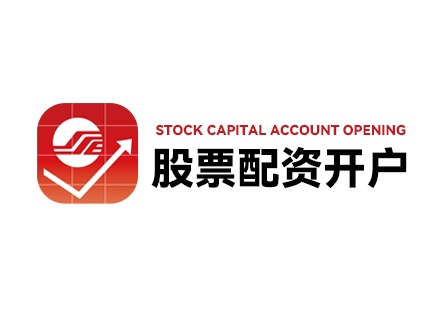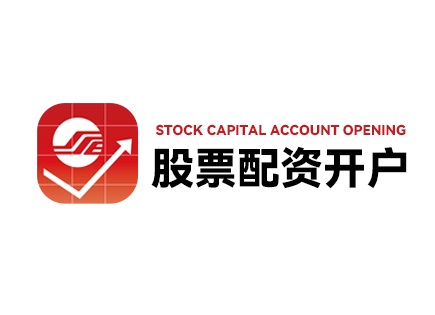 炒股配资_配资开户_股票配资平台/股票配资平台/10倍杠杆平台
炒股配资_配资开户_股票配资平台/股票配资平台/10倍杠杆平台
Exploring a legitimate stock trading platform: Strategies, Financing, Risks, and more
Introduction:

In today's dynamic financial market, finding a legitimate stock trading platform is crucial for investors. In this discussion, we will explore various aspects of a reputable stock trading platform, including risk management strategies, stock financing options, risk levels involved, speed of transactions, market analysis, and net profit generation.

Risk Management Strategies:
One of the key factors to consider while choosing a stock trading platform is its risk management strategies. A reputable platform should have robust risk controls in place to protect investors from significant losses. This may include setting stop-loss orders, diversifying investments, and monitoring market volatility.
Stock Financing Options:
Stock trading platforms offer various financing options for investors to leverage their positions in the market. This may include margin trading, options trading, or even stock loans. It is essential for investors to understand the risks associated with each financing option before using them.
Risk Levels:
Every stock trading platform comes with its own set of risks. These risks may vary depending on the market conditions, the type of securities being traded, and the investor's risk tolerance. It is essential to assess the risk levels involved before making any investment decisions.
Speed of Transactions:
Efficient and quick transactions are vital in today's fast-paced stock market. A legitimate stock trading platform should offer fast execution speeds, instant trade confirmations, and real-time market data to ensure smooth trading experiences for investors.
Market Analysis:
Having access to comprehensive market analysis tools is critical for making informed investment decisions. A reputable stock trading platform should provide various technical and fundamental analysis tools, along with expert insights, to help investors understand market trends and make profitable trades.
Net Profit Generation:
Ultimately, the goal of any investor is to generate net profits from their investments. A legitimate stock trading platform should offer competitive transaction fees, transparent pricing models, and reliable order execution to maximize investors' profits while minimizing costs.
In conclusion, when choosing a stock trading platform, investors should carefully evaluate the platform's risk management strategies, financing options, risk levels, transaction speeds, market analysis tools, and potential for net profit generation. By selecting a legitimate and reliable platform, investors can navigate the complex stock market landscape with confidence and achieve their financial goals.
- 07-28丰都股票配资平台全面分析
- 07-28Exploring a legitimate stock trading platform: Strategies, Financing, Risks, and more
- 07-28免费体验专业配资,开启炒股之旅
- 07-28七星策略全面探讨
- 07-28七星配资平台的全方位介绍
- 07-28线上股票配资平台哪个好
- 07-28股票配资平台搭建的关键要点及策略优化
- 07-27网络炒股配资的全面探讨
- 07-28股票配资平台的动向及投资策略
- 07-28十倍炒股:投资收益与风险控制全面解析
- 07-28酩扬策略股票配资平台详细介绍与分析
- 07-28股票配资平台全方位分析与管理策略优化
- 07-27柳州股票配资首选平台讨论
- 07-28股票配资平台选择及操作流程分析
- 07-28如何选择股票配资平台
- 07-28汽车股票配资平台排名及深度分析
- 07-28天津股票配资咨询平台全方位分析
- 07-28股票场外配资合法平台的全面讨论和分析
- 07-28优配华泰:财务分析、收益分析策略与风险提示
- 07-28深入探讨赣榆股票配资平台的操作策略与技巧
- 07-28深度分析:如何选择合法正规的配资平台及操作技巧
- 07-28优化投资策略与风险管理:淘配网APP完全指南
- 07-28按月股票配资平台详解
- 07-28深度分析:实盘配资公司的短线交易策略与收益评估
- 07-28深度分析:股票配资平台的功能与作用
- 07-28综合性炒股平台分析及优化策略
- 07-28金鼎配资公司股票平台深度分析
- 07-27股票配资平台雪球的投资魅力分析
- 07-28探讨股票配资平台路易泽配资的综合性分析
- 07-28番禺股票配资:投资回报执行优化
- 07-28股票工具综合分析
- 07-28网上股票配资平台的安全性及发展前景分析
- 07-27炒股配资全面分析:技巧、操作评估、资本运作与风险保护
- 07-28炒股配资平台综合分析
- 07-28杨方配资平台的全方位分析
- 07-27颠覆传统,解锁股票配资新境界
- 07-28如何选择正规股票交易平台进行高效配置与投资回报规划分析
- 07-28元富证券全面探讨
- 07-28优化股票配资策略,提高投资收益率
- 07-28股票配资分析与策略优化
- 07-28高盈配资的全面分析
- 07-28港陆证券全方位分析
- 07-28渭南股票配资炒股平台分析报告
- 07-28深度解析股票配资炒股平台的投资技巧
- 07-28证配所全面介绍
- 07-28东莞股票配资平台收益综合分析
- 07-28深入探讨线上股票配资软件的投资心得与交易策略
- 07-28如何选择股票配资平台排名
- 07-28综合性探讨证券投资APP的利润回撤、收益风险管理和增加收益的方法
- 07-28股票网上配资全方位探讨